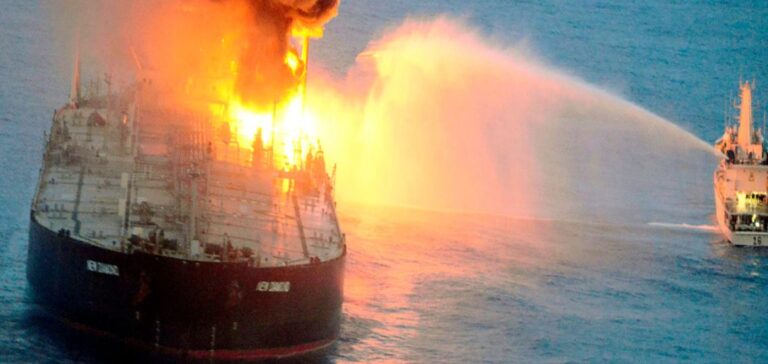The explosion occurred early Sunday morning, February 9, aboard the oil tanker *Koala*, moored in the port of Ust-Luga, in the Leningrad region. The incident happened while the ship’s main engine was being prepared, prompting the crew to evacuate immediately, the Russian maritime agency Rosmorretchflot reported on Telegram.
No Leaks and Incident Contained
Maritime authorities specified that the *Koala*’s cargo tanks were not damaged and that no oil product leaks occurred. Floating barriers were deployed around the tanker to prevent any environmental risks. Rosmorretchflot confirmed that there was no risk of sinking and that the incident remained confined to the engine room.
A First in Ust-Luga Port
This type of incident remains rare in this port facility, which plays a key role in Russia’s hydrocarbon exports. The port of Ust-Luga is one of the country’s major energy terminals, ensuring the transit of crude oil and refined products to international markets.
Maritime Transport Under Pressure
The accident comes as the Russian maritime sector faces increased scrutiny. Since the beginning of the conflict in Ukraine and the implementation of Western sanctions targeting the oil sector, Moscow has strengthened the use of tankers owned by entities with opaque structures. This “shadow fleet,” often lacking standard insurance, allows Russia to circumvent existing restrictions on hydrocarbon exports.
Previous Incidents in the Russian Oil Fleet
The *Koala* explosion recalls other recent incidents. In December 2024, two Russian oil tankers ran aground in the Kerch Strait during a storm, causing massive coastal pollution. These events highlight the growing challenges associated with the exploitation and transportation of Russian oil in an increasingly constrained environment.





















